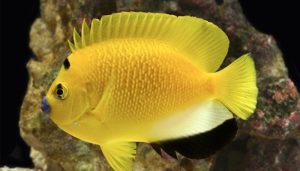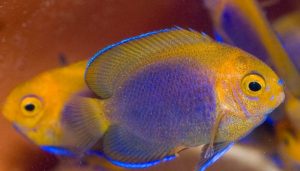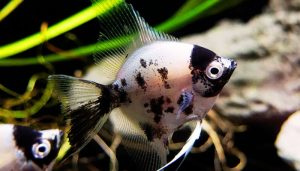Why do my water tests perfect but my fish keep dying? Are you perplexed and frustrated as your fish die, even though your water tests show excellent results? It’s a troubling situation that many aquarium owners face, and you’re not alone. Even with perfect water tests, fish can die due to factors like stress, sudden temperature changes, disease, or poor tank mates. Monitor all aspects of your aquarium environment closely.
This blog post will unravel the mystery behind this perplexing phenomenon and provide solutions to save your fish.
It’s a common misconception that your fish should thrive if your water parameters are within the recommended range. But unfortunately, that’s not always the case.
There may be underlying factors causing stress and health issues for your aquatic friends, leading to their unfortunate demise.
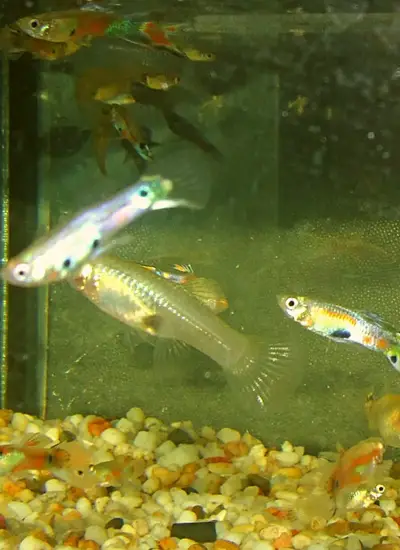
In this comprehensive guide, we will not only explore why your fish may be dying despite seemingly perfect water conditions, but we will also delve into practical solutions that can help you provide the optimal environment for their well-being.
By understanding the hidden causes and implementing the right strategies, you can turn the tide and ensure the longevity and vitality of your beloved fish.
So, if you’re ready to uncover the answers and end the heartbreaking cycle of fish loss, let’s dive right into this enlightening journey and reclaim the joy of a thriving aquarium.
Table of Contents
ToggleWhy My Water Tests Perfect but My Fish Keep Dying?
Several possible common causes for fish deaths in an aquarium exist, even when the water tests indicate optimal conditions.
One reason could be specific water parameters not being tested for or considered in the tests. It is essential to understand the needs of the fish species in your tank and ensure that the water conditions match their requirements.
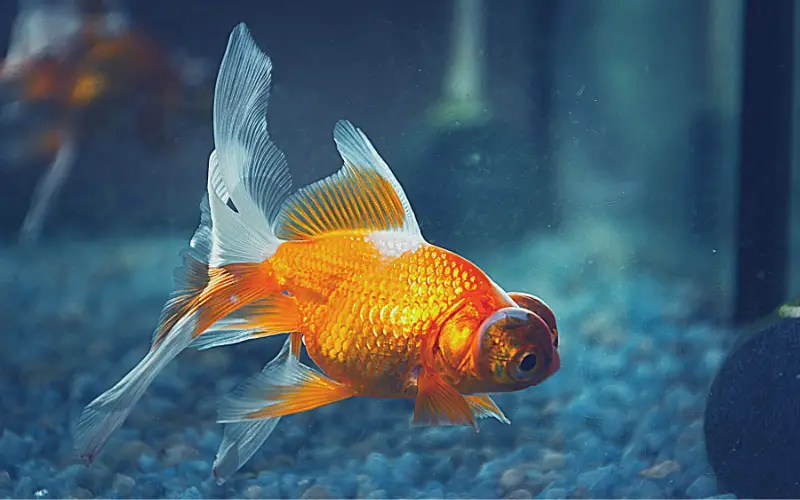
Additionally, overfeeding can also be a problem. When fish are overfed, uneaten food can decompose and pollute the water, leading to poor water quality. This can adversely affect your fish’s health and cause them to die, even if the water tests appear perfect.
How can I maintain a stable water environment in my aquarium?
What are the recommended water changes?
Regular water changes are crucial for maintaining a healthy aquarium. Changing approximately 20-25% of the tank water is generally recommended every 1-2 weeks. This helps remove accumulated fish waste, excess nutrients, and other pollutants that can risk your fish.
What should I do when setting up a new tank?
Starting with a solid foundation is essential when setting up a new aquarium tank. Rinse any aquarium gravel or substrate thoroughly to remove any dust or debris.
Properly cycle the tank to establish beneficial bacteria to help break down fish waste and keep the water clean. Introduce fish slowly, starting with a few and gradually adding more over time.
What should I do if my fish keep dying despite regular water changes?
If your fish keep dying even after regular water changes, it is crucial to investigate further. Recheck the water parameters, including pH, ammonia, nitrite, and nitrate levels.
If any of these parameters are outside the optimal range, take the necessary steps to correct them. Consider consulting with an aquarium expert or visiting your local pet store for assistance and advice.
What should I do if my fish suddenly die?
Fish keep dying but water is fine: It’s troubling to hear your fish are dying even though the water parameters seem normal. Here are some steps you can take to diagnose the issue and save your remaining fish:
- Isolating the Problem:
- If you have multiple tanks, isolate any healthy fish into a separate tank with clean, conditioned water. This will help prevent the spread of any potential disease.
- Double-Checking Water Parameters:
- While you trust your tests, it’s good practice to retest the water for ammonia, nitrite, nitrate, and pH. Even minor fluctuations can be harmful.
- Consider testing for additional factors like chlorine or chloramines if you use tap water.
- Examining the Dead Fish:
- Look for any physical signs that might indicate a disease, like white spots, body ulcers, or clamped fins. This can help narrow down potential causes.
- Environmental Toxins:
- Have you introduced any new decorations, plants, or fish medications recently? These can sometimes introduce toxins to the water.
- Have you used any cleaning products or air fresheners near the tank? The fumes can be harmful to fish.
- Equipment Failure:
- Check if your tank heater, filter, or air pump are functioning properly. A lack of oxygen or temperature fluctuations can stress fish.
If you’re still having trouble diagnosing the issue, consider consulting a local fish store or online aquarium forum for further advice. Providing details about your tank setup, water parameters, and any observed symptoms can help pinpoint the cause.
What are the possible causes of sudden death in fish?
There can be various causes for sudden death in aquarium fish. It could be due to poor water quality, high levels of ammonia or nitrite, sudden temperature fluctuations, or the introduction of new fish in your tank without proper quarantine. It is essential to identify the cause to prevent further fish deaths.
How can I improve water quality and prevent further fish deaths?
Conduct regular water tests and monitor the ammonia, nitrite, nitrate, and pH levels to improve water quality. If any of these parameters are off, take appropriate measures to correct them. Ensuring proper filtration, adequate aeration, and regular aquarium maintenance is also vital.
What steps should I take to ensure a healthy fish tank?
Ensuring a healthy fish tank involves several steps. Firstly, choose the right type of fish for your tank and consider their compatibility with other species. Please provide them with a balanced diet and avoid overfeeding.
Maintaining stable water conditions within the recommended range for the specific fish species, including temperature, pH, and water hardness. Regularly clean the fish tank and remove any uneaten food or debris.
How do I test the water in my fish tank?
What kind of test kit should I use?
A reliable water testing kit is essential to accurately assess the water parameters in your fish in the tank. Various test kits, including liquid and test strips, are available in the market.
Choosing equipment that can measure pH, ammonia, nitrite, and nitrate levels is advisable, as these are critical indicators of water quality.
What are the recommended water parameters for a healthy fish tank?
Specific water parameters should be optimal to maintain a healthy fish tank. The recommended pH level typically varies depending on the fish species, but a neutral pH of around 7 is ideal for most freshwater aquariums.
Ideally, nitrite and ammonia levels should be zero, while nitrate levels should be below 40 parts per million (ppm).
What should I do if my water test results exceed the optimal range?
If your water tests indicate that specific parameters are not within the optimal range, steps should be taken immediately to correct them.
For example, if ammonia or nitrite levels are high, it may indicate a problem with biological filtration or overfeeding. Conduct partial water changes, reduce feeding, and ensure proper filtration to return the levels to normal.
How can I prevent fish deaths in my aquarium?
What are the common causes of fish deaths in an aquarium?
Common causes of fish deaths in an aquarium include poor water quality, inadequate filtration, sudden changes in water temperature, overstocking, aggressive tank mates, disease, and stress. It is crucial to address these factors to prevent fish deaths and maintain a thriving aquarium.
How can I ensure a stable water temperature for my fish?
Maintaining a stable aquarium water temperature is essential for the well-being of your fish. Invest in a reliable aquarium heater to regulate the temperature and prevent sudden fluctuations.
Ensure that the heater is appropriate for the size of your tank, and monitor the temperature regularly to ensure it remains within the recommended range for your fish species.
What should I do if my fish appear sick or stressed?
If your fish appear sick or stressed, prompt action is necessary to prevent further complications. Quarantine the affected fish to minimize the spread of disease.
Evaluate the water quality and parameters, and take appropriate measures to improve them. Consult a veterinarian specializing in fish health or seek advice from experienced aquarists to diagnose and treat any health issues accurately.
In conclusion, it can be frustrating to experience fish deaths even when your water tests show perfect results.
However, by considering the specific needs of your fish species, maintaining a stable water environment, regularly monitoring the water parameters, and taking appropriate corrective actions, you can prevent further fish deaths and enjoy a thriving and healthy aquarium.
Commonly Asked Questions (FAQs)
Why do my fish keep dying even though my water tests are perfect?
why does my fish keep dying? There could be several reasons your fish keep dying, even if your water parameters are within the acceptable range. Sometimes, the problem can be related to unstable water conditions or overfeeding your fish.
How often should I change the water in my aquarium?
It is recommended to perform regular water changes every one to two weeks. This helps maintain stable water parameters and ensures a healthy environment for your fish.
Can tap water be harmful to my fish?
Tap water may contain hazardous chemicals such as chlorine or heavy metals that can harm fish. Using a water conditioner to remove these substances before adding tap water to your aquarium is essential.
What should I feed my fish?
It is crucial to provide a balanced diet for your fish. Check the specific dietary requirements for your fish species and feed them appropriate commercial fish food. Avoid overfeeding your guppies, as this can lead to water quality issues.
Why are my fish getting sick?
Various factors could contribute to sick fish, including poor water quality, new tank syndrome, improper diet, stress, or immune system disease. It is essential to monitor the water parameters, provide a varied and nutritious diet, and ensure a stress-free environment for your fish.
My water is fine, but my fish are dying. What could be the problem?
Why do fish keep dying, but water is fine? Even if the water parameters appear normal, there may be underlying issues causing stress to the fish and leading to a dead fish. Common causes could include changes in water temperature, aggression among fish, or introduction of new fish without proper quarantine.
How many fish can I keep in my tank?
A: The number of fish you can keep in your tank depends on the tank’s size and the fish species. Generally, a good rule of thumb is to allow at least 1 gallon of water per inch of fish. Overcrowding might lead to poor water quality and stress for the fish.
What are the common causes of fish deaths in aquariums?
The most common causes of fish deaths in aquariums include poor water quality, inadequate filtration, overfeeding, disease, stress, and aggression among fish. It is essential to address these issues to maintain a healthy environment for your fish.
How can I prevent my fish from dying?
To prevent your fish from dying, it is vital to maintain stable water parameters, provide proper filtration, perform regular water changes, feed your fish a balanced diet, and monitor their behavior closely for any signs of illness. Additionally, it is essential to introduce new fish to the tank gradually and quarantine them before adding them to the main tank.
What should I do if my fish die overnight?
If your fish die unexpectedly overnight, it could indicate an issue with water quality, disease, or stress. It is recommended to test the water parameters, check for signs of illness in the remaining fish, and take appropriate measures to address the cause of the sudden fish deaths.
Final Thoughts
In conclusion, water testing is a crucial aspect of fishkeeping, but it’s not the only factor that affects your fish’s health. If you say, “My water tests perfect but my fish keep dying,” it’s time to look beyond the numbers. Consider factors such as tank size, water flow, filtration, and feeding habits. Don’t forget to observe your fish closely and be vigilant for any signs of illness or stress. Remember, your fish rely on you for their well-being, and it’s up to you to provide a healthy and thriving environment for them.
You might also like
- Do Guppies Die After Giving Birth? (5 Causes & Solutions)
- Guppy Tank Setup 101: Best Practices (Low Tech, Low Budget)
- How Long Does Guppy Live: 7 Easy Tips to Prolong your guppies Lifespan
- Does Guppies Need a Heater: A Comprehensive Beginner’s Guide
- Can I Put 2 Pregnant Guppies Together Safely? (Solved)
- How to Set Up a Guppy Breeding Tank: 7 Easy Tips (Explained)
- Endler Fancy Guppy Hybrid: 5 Mind-Blowing Facts You Need to Know!
- Bloated Guppy Diseases: 3 Surefire Ways to Save Your Fish!
- 5 Secrets to Achieving Ideal Water Hardness for Guppies at Home!
- Why Do My Guppies Keep Dying: (5 Major Causes & Best Solutions)


